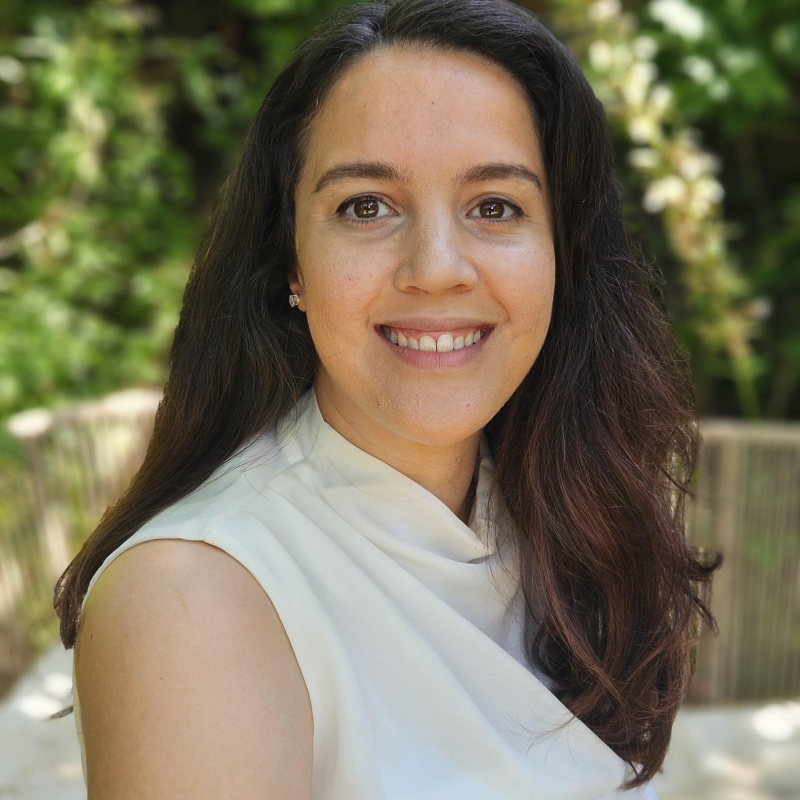As the UK's clocks have gone back, and we are once again plunged into darkness, the PR industry straps in for one of its busiest periods.
Meanwhile, some PR professionals may be wistfully wishing their morning commute away with dreams of becoming their own boss.
Winter,and especially January, is famously slow for freelancers, but in keeping with the 'New Year, new me' mentality, the festive period can rumble up thoughts of going it alone.
The question is, should that stay a pipe dream or can you make it a reality? We asked established freelancers to tell us how they started out, and give advice to anyone else considering it for 2026.
Harness your network
Sarah Nadif, director of communications at Access Partnership: "Get out and attend as many in-person events as you can. Not just to meet people, but to upskill and educate yourself on where the market is and what people are buying.
"Before I took the leap to become an independent consultant in the summer of 2024, I started by meeting up with others who'd left permanent roles. In June, I attended London Tech Week on a complimentary pass and sent out coffee invitations to former clients and interesting companies. I also joined Women In PR and attended its brilliant events.
"By August I’d secured a personal profile in The Telegraph and had agreed my first two clients within the first month of trading. One client through a colleague recommending me, and another through proactive engagement following an event.
"Now I'm on the other side — in-house at Access Partnership and building out our local StratComms consultants — I'm finding community Whatsapp groups like David Gallagher’s Advisory Club network hugely valuable. Good industry events are recommended there, as well as adhoc freelance opportunities.
"Lastly it’s important to remember that going independent is not just a way of life, it’s also a great way to test out companies you want to work for, as hiring is a two-way process.
Collaborate with the 'competition'
Matt Seabridge, freelance digital PR specialist at Digital PR Tips: "Start networking with other freelancers as early as possible.
"While it's totally logical to view other freelancers as your competition, the freelancing community has been my strongest asset when it comes to securing work — not to mention sharing experiences, supporting me, and answering all the questions I had.
"Just under half of the clients I've worked with came via referrals from fellow freelance PRs. Those projects have accounted for 60% of my freelance income. I would have really struggled finding enough work to make freelancing a viable option for me, if not for the help of the freelancing community sending work my way — especially when I was first starting out.
"Introduce yourself, ask questions, tell people what you do and if there are certain industries or services you specialise in, for example. We get plenty of leads that aren't right for us personally, and rather than just saying no, many of us will recommend other freelancers who might be better suited."
Consider your finances
Georgia Atkins, freelance PR consultant: "After two and a half years working in agencies and in-house, I decided to take the leap into freelancing.
"At first, it was daunting because you lose the immediate support network of colleagues and the familiar rhythm of an office structure. Suddenly, you're the CEO of a one-person business, and fending for yourself means juggling everything from admin and invoicing to client servicing. That means being your own marketing person, salesperson, and, of course, PR lead for your clients.
"My biggest tip is simple: have a back-up fund. Before I switched over, I made sure I could cover my house, personal, and business bills for three months. This was absolutely essential because you can make decisions under financial stress that you will regret later on. That buffer meant I had less pressure to take on clients that, let's be honest, I probably wouldn't choose to work with out of desperation. This freedom allowed me the time to figure out the brands I truly wanted to work with, build my website, and post regularly on socials about my new role.
"A lot of people think they need heaps of capital to start their freelance journey, but you don't. Cover the necessities, and you'll be fine. Having that buffer takes the pressure off and gives you the space to breathe and build your business properly. This approach ensures you maintain high standards from day one, rather than just chasing the next pay check."
Don't neglect your pipeline
Sanina Kaur, director at SK Copy Co: "Have a strategy for proactively generating clients. You can’t expect them to just magically land on your lap once you’ve updated your LinkedIn status to freelance.
"For instance, are there any old contacts or colleagues you can reach out to? If you have agency experience, are there any regional marketing agencies that offer PR as a service, or dedicated PR agencies you can contact? If you want to provide companies with direct PR support, who are they, who’s the best person for you to speak to and what relevant industry experience do you have?
"Potential clients aren’t going to know about you, your PR services and how you can help unless you tell them. Get into the habit of conducting proactive outreach from day one, regardless of how busy you may be.
"Also remember to continue with your outreach, even when you have a full quota of clients and can’t take on anymore because clients’ requirements invariably change, which impacts how little or much they need you, or if they even need you at all. Treat yourself as a client and don’t neglect your client pipeline."
Hold yourself accountable
Ruth Wilson, founder of Ruth Wilson PR: "My number one tip to anyone thinking of going freelance is to hire a good accountant from the outset.
"I set up on my own 14 years ago, after working for agencies for many years, and I now enjoy working with clients all over the UK and further afield.
"I'm not an accountant by trade, I’m a PR professional. My clients pay me to advise them on their PR strategy, get them good media coverage and generally help them manage their reputations. They appreciate that I charge them a fair rate for doing so.
"I'm able to do that thanks to the accountants I work with, who ensure I’m keeping on top of my taxes, planning ahead properly, and managing my cash flow well enough to keep running and growing a successful business.
"We can’t all be experts at everything. I’m good with words; the accountants are good with numbers. They save me an incredible amount of time and help me keep things on track. Always bring in outside experts where needed, so that you can concentrate on the business you are building and have more time to develop and thrive in your own chosen field."
Don't burn any bridges
Naomi Woodford, PR freelancer: "PR is full of people with one thing in common; a love of talking.
"Use this to your advantage by keeping in touch with old colleagues, clients and recruiters. Keeping conversations going is often the best way to hear about opportunities, and there are some great industry WhatsApp groups worth connecting with.
"When I decided to make the freelance leap, my first projects came directly from industry referrals and people I’d worked with years before. Like in most industries, your reputation is key and staying visible and connected often goes further than a slick website — although I’m sure that’s still a great asset to have.
"So, be open, flexible, diligent and keep talking. Whether a LinkedIn message or coffee, the next brief often comes from someone who remembers what you’re good at."
If you enjoyed this article, sign up for free to our twice weekly editorial alert.
We have six email alerts in total - covering ESG, internal comms, PR jobs and events. Enter your email address below to find out more:











